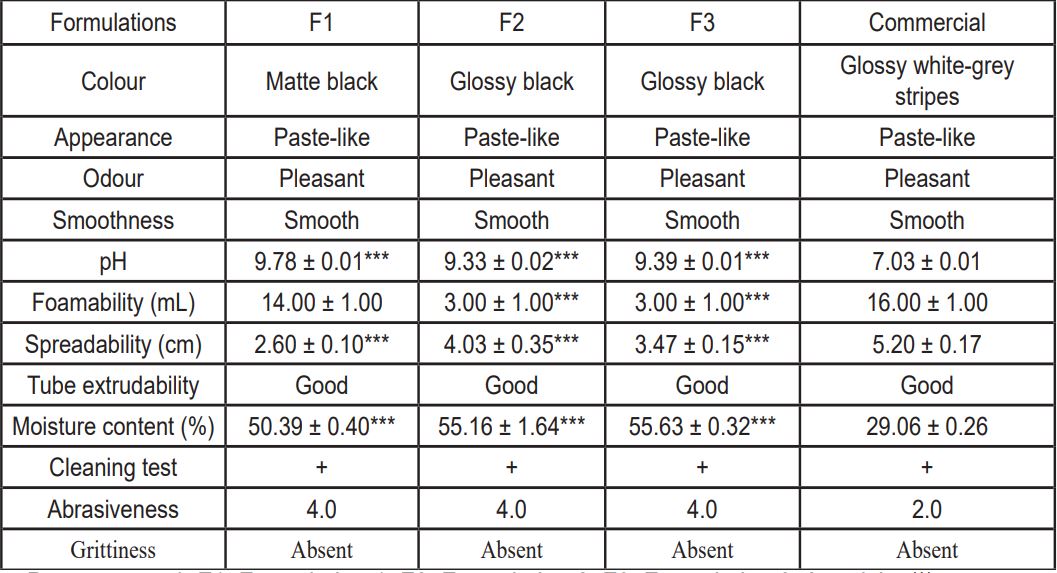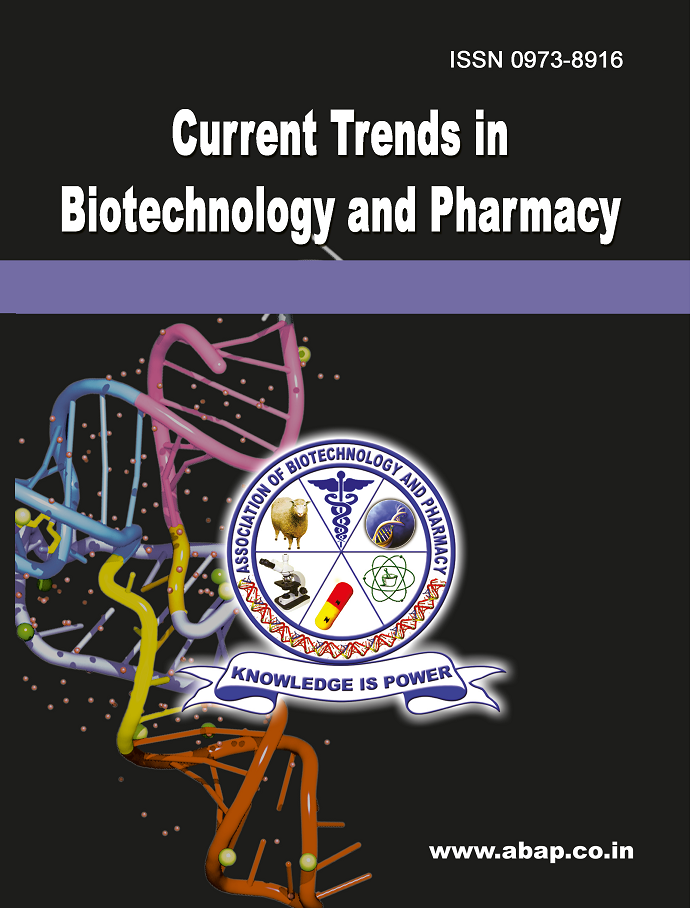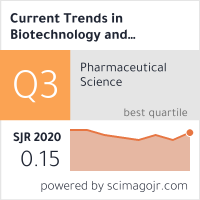Development and Evaluation of Sulfate-Free Charcoal Toothpaste from Coconut Shell and Rice husk
DOI:
https://doi.org/10.5530/ctbp.2024.3.32Keywords:
Charcoal toothpaste, Sulfate-free toothpaste, Coconut shell, Rice huskAbstract
Toothpaste containing sulfate is one major concern as it is known as irritating and causes adverse effects in the oral cavity. Hence, a sulfate-free toothpaste is much more preferred nowadays. This research paper discusses on three sulfate-free toothpaste formulations that were prepared and optimized containing two types of charcoal namely activated coconut shell charcoal and rice husk charcoal. The formulations differ in the binding agents and surfactants used and they are evaluated based on 13 physiochemical characterizations including organoleptic properties, pH, foamability, spread ability, tube extrudability, moisture content, FTIR spectroscopy, cleaning test, toxicity assay, stability, abrasiveness, grittiness and morphological evaluation. One commercial toothpaste was also included in the test to be used as comparison. The objectives of this research are to prepare and optimize sulfate-free toothpaste formulations with natural charcoal from coconut shell and rice husk, evaluate the toothpaste formulations for physiochemical characterization, stability, toxicity and their effectiveness (cleaning test). Menthol crystals were dissolved in Propanediol and rice husk charcoal were grinded with mortar and pestle. All solid ingredients (including activated coconut shell charcoal, carrageenan, sodium dodecyl sulfate (SDS) and Sangelose) were then mixed together with a small amount of distilled water. After transferring to a white tile, liquid ingredients were added to the solid mixtures and mixed thoroughly using spatulas. The liquid ingredients included were dissolved menthol, liquid surfactants (including decyl glucoside (DG) and Tween-80 (T-80), glycerin, triethanolamine and coconut oil. Finally, distilled water was added gradually until a paste consistency was formed. Three toothpaste formulations have been developed namely F1, F2 and F3 of which varied in the binding agent and surfactant used. All toothpaste formulations showed results similar to commercial toothpaste in terms of appearance, odour, smoothness, tube extrudability, cleaning test and grittiness. F1 have the highest basic pH (9.78) and highest foamability (14 mL) among the toothpaste formulations. However, F1 have the lowest germination index (48.1%) indicating that it is most toxic than the others including the commercial toothpaste. In conclusion, all three toothpaste formulations were able to achieve the desired and acceptable characteristics with the physiochemical characterization. This study might provide good scope and be useful for further research as being a sulfate-free toothpaste that uses renewable waste activated coconut shell charcoal and rice husk charcoal as the abrasive ingredients and is capable of improving and maintaining oral hygiene.



